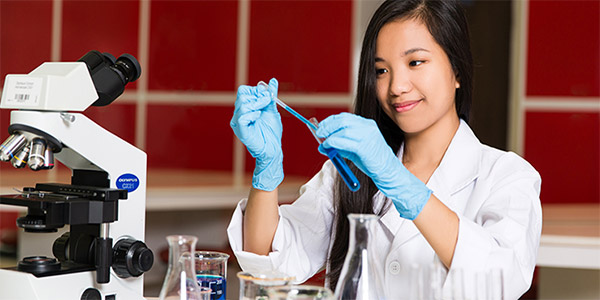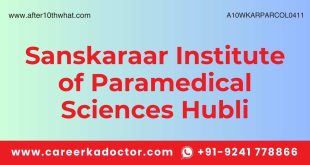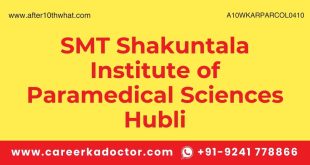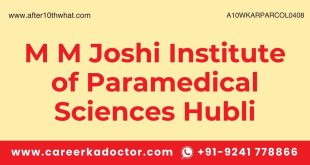Diploma in Biomedical Science
The Diploma in Biomedical Science (BMS) is the course in which you will learn about how diseases affect the human body. how our immune system works and the processes of finding cures for these diseases. BMS provides a strong foundation in medical microbiology, medical biochemistry, physiology, developmental biology, cell and molecular biology, genomics and proteomics.
You will work with scientists and doctors on real-life research projects and be exposed to the world of translational research, where basic science research is linked to clinical investigations.
In your final year, you get to apply what you have learnt in the classroom to the reaI-world setting during the four-month local or overseas internship. You will also undertake an intensive research project. You can pursue exciting elective modules in the areas of Forensic Science, Molecular Biology of Disease, and Pharmaceutical Science and Clinical Trials.
Skills Required
- To be successful as a Diploma in Biomedical Engineer.
- You must be both analytical and detail-oriented and strong in biology and chemistry.
- You should have Strong math, science and technology skills to a successful career in Bio-Medical Engineering.
Nature of Job
- As a biomedical engineer you need to develop new procedures and equipments to deal with clinical problems for the overall enhancement of health care.
- As biomedical engineer you need to analyze and conceptualize medical challenges by helping to design and develop a wide range of capacities of medical instruments and devices.
- Diploma in Biomedical Science engineers with its application of engineering principles and techniques in the field of medical science are contributing to the health care sector in a large way.
- As a biomedical engineer you will also need to improvise equipments such as artificial limbs, heart valves and kidney machines.
- Diploma in Biomedical Science engineers are use to create and maintain to the development of such devices as heart pacemakers, create and maintain them so that they can be implanted in a patient’s body to improve the heart’s functioning.
- As a biomedical engineer you will need to take responsibility of looking after and administering care to medical equipments , medical furniture and surgical instruments from the most simple machines to the most complex ones.
- As a biomedical engineer your duty is to train the user for continual improvement to avoid application related problems.
Syllabus
- Graduates from the Diploma in Biomedical Science Engineering Technology program receive a Diploma of Technology in Biomedical Engineering Technology.
- The program provides education and training in the following subject areas:
- technical communication.
- algebra.
- calculus.
- statistics.
- basic bio- and analytical chemistry.
- human anatomy and physiology.
- biophysics.
- electricity and electronics.
- digital techniques and microprocessor applications.
- biomedical devices and systems.
- medical equipment-related standards.
- quality assurance protocols.
- During the second year, each student spends five weeks in supervised training in a local hospital, research agency, or equipment supply company.
- Graduates work closely with biomedical engineers and technologists, physicians, and others who use, manage, maintain, design, manufacture, and supply scientific and medical equipment.
- The program provides hands-on laboratory experience throughout, and trains students in engineering problem-solving methodology to allow them to upgrade and maintain their knowledge.
Higher Studies
You can select a wide range of degree programmes, from biological science, medicine, chemistry, bioengineering, and medicine to education, arts, architecture, dentistry, business, psychology and social science.
Job prospects
You will enjoy excellent career prospects as research assistants, laboratory biologists and laboratory analysis before progressing to senior positions in research, biomedical science, healthcare, pharmaceutical and clinical labs.
Employers
- Medical technologist.
- Laboratory technologist.
- Hospital Staff.
- Clinic Assistant.
- Medical Research Assistant.
With emerging state –of –the –art- hospitals in the healthcare industry and with advancements in medical tourism lots of opportunities have nowadays emerged in diverse spheres like
- Hospitals.
- Laboratories.
- Teaching staff in universities.
- Research and development centers etc.
- Government regulatory bodies etc.
 Courses and Colleges after 10th After 10th, What Next?
Courses and Colleges after 10th After 10th, What Next?








